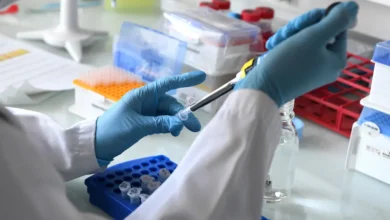Study finds that 3% of schoolchildren have both autism and ADHD symptoms

According to a new study, around 3 percent of schoolchildren face symptoms of both autism and attention-deficit/hyperactivity disorder (ADHD), and around 0.5 percent of children can be diagnosed with both. The Spanish study, published in Autism Research, further found 33 percent of children with autism also had ADHD, with the rate being higher among older children (46 percent) compared to younger ones (22 percent).
What is autism?
Autism is a neurodevelopmental disorder that affects a person’s communication, speech, learning, and behavioral patterns. It’s also known as Autism Spectrum Disorder. Some common signs and symptoms include difficulty with eye contact, communication, social interaction, and sensory difficulties.
What is ADHD?
Attention-deficit/hyperactivity disorder, or ADHD, is one of the most common neurodevelopmental disorders detected early in childhood. The symptom of this disorder includes hyperactivity, impulsiveness and difficulty in paying attention.
More about study linking the two disorders
Recent research investigated how often ADHD and autism can occur in the same children at the same time. The study investigated 3,374 preschoolers ranging from 4 to 5 years old and 3,520 school-aged children aged 10 to 11. The research also included 99 percent of the teachers of these children but only 54 percent of the families, with a final sample of 3,727 children with information from both families and teachers.
The study was part of the Neurodevelopmental Disorders Epidemiological Research Project, conducted between 2014 and 2019 in the province of Tarragona, Spain.
What the study found
“In the present study, parents and teachers reported a similar 3 percent prevalence of autism and ADHD traits, with an estimated comorbid diagnosis prevalence of 0.5 percent. Only 16 percent of the children had received prior diagnoses for both conditions, although parents and teachers identified traits of autism and ADHD in almost all cases,” the researchers said, adding, “Based on the findings, early screening for co-occurring autism and ADHD in both school and family settings is recommended.”
Key takeaways
The co-occurrence of autism and ADHD was much higher in boys than in girls – 4–5 percent vs 1–2 percent, depending on whether the diagnosis was based on information from parents or teachers.
10 percent of children with ADHD also had autism, with the percentage being somewhat higher among younger children (16 percent) than older children (8 percent). However, it remains unclear if this difference is due to random variation. An additional 6 percent of children with autism showed symptoms of ADHD that did not reach the diagnostic threshold.
Please note, the study sheds light on the prevalence of ADHD and autism among children from one province in Spain, and the reported percentages might not be the same in other parts of the world.










